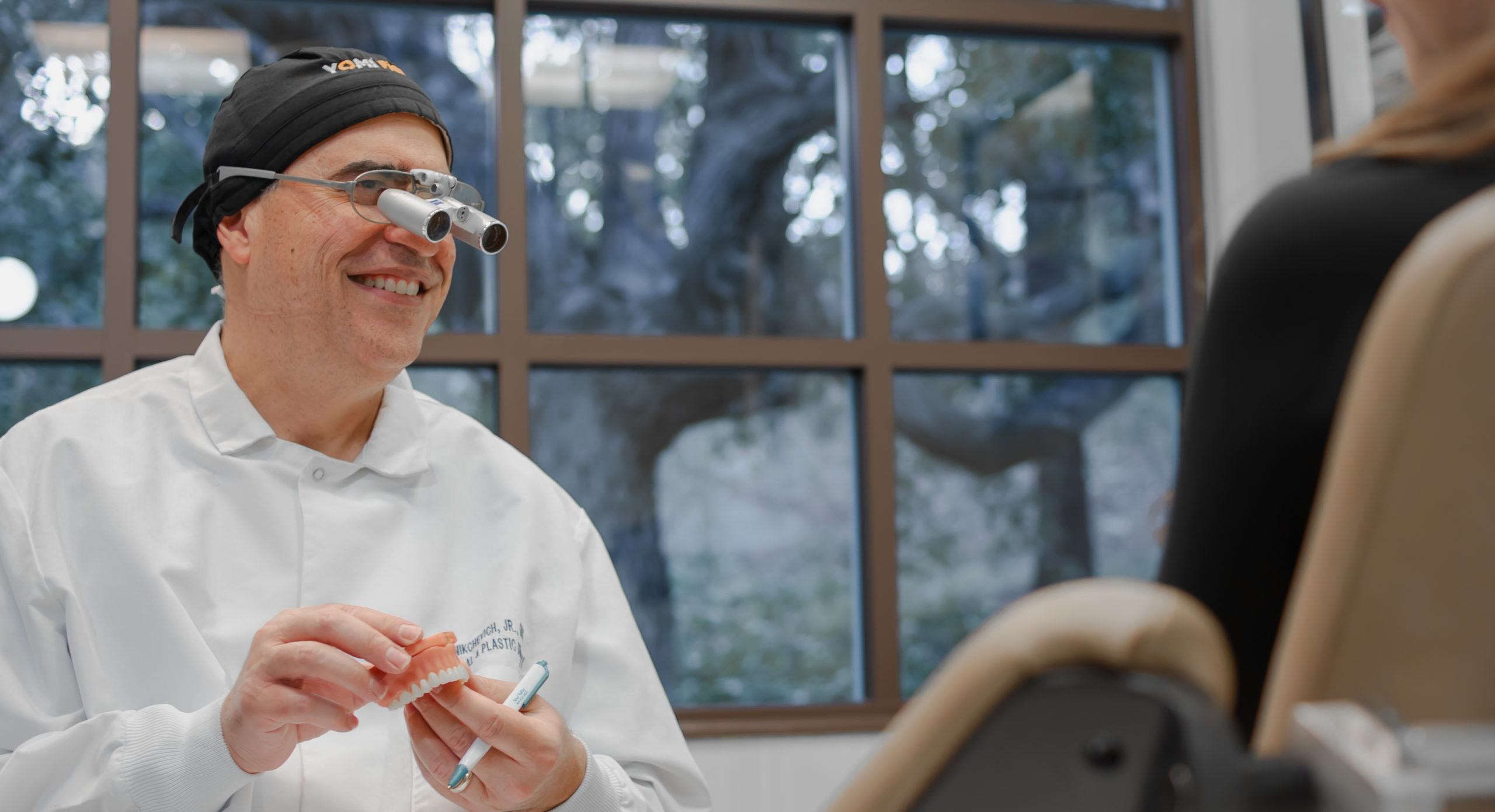
Postoperative Instructions Extractions
Instructions for Care of the Mouth at Home Following Treatment
Extractions
Oral Surgery Postoperative Instructions
Post-op bleeding:
Maintain gauze with mild to moderate pressure for a total of 1 hour after surgery, changing the pack every 20 minutes. If, at the one-hour mark, the gauze is completely soaked with dark red blood (without any white areas), replace it with sterile gauze as provided and maintain pressure for another 30 minutes. Some oozing of blood is expected following oral surgery and may continue for up to 48 hours after your procedure. A small amount of blood mixed with saliva may appear worse than it actually is. Do not replace gauze if it is pink or not completely red.
Diet:
Adequate food and fluid intake following surgery is very important. For a single tooth extraction, a normal diet can be resumed as soon as you are comfortable, chewing mainly on the opposite side of the extraction site. If you have had your wisdom teeth or multiple teeth removed, a soft diet is recommended for 2–3 days after surgery. A good rule of thumb is: “If you can cut it with the side of a fork, it’s soft enough” or “anything up to the consistency of well-cooked pasta.” After day 3, you may advance your diet back to a normal diet at your comfort level. Please do not restrict yourself to a liquid diet.
Pain
If you have not been prescribed pain medication, it is advised that you take your preferred over-the-counter pain medication before the numbing wears off. Generally, whatever you would take for a headache or back pain should suffice.
Children should always receive the manufacturer’s recommended dosage. Avoid aspirin in children, as it may cause Reye’s syndrome.
If you weigh 150 lbs or more and have no underlying health conditions, you may take 1,000 mg of acetaminophen and 600 mg of ibuprofen concurrently every 6 hours as needed for severe pain. Be careful not to exceed 4,000 mg of acetaminophen and 3,200 mg of ibuprofen in any 24-hour period. PLEASE DO NOT TAKE THESE MEDICATION IF YOU HAVE AN ALLERGY TO THEM.
If you have been prescribed pain medication, please take it as directed. Medications containing a narcotic should only be taken at least 45 minutes after a dose of ibuprofen or acetaminophen if there is no reduction in pain or if you are unable to take ibuprofen safely.
If you develop a rash, itching, or swelling, discontinue all medications IMMEDIATELY and contact our office. If you experience difficulty breathing, discontinue all medications and go to the Emergency Department of the nearest hospital, then contact our office.
WARNING: DO NOT DRIVE OR OPERATE MECHANICAL EQUIPMENT AFTER TAKING PAIN MEDICATION.
Hygiene
Regular brushing during healing is extremely important to prevent infection. However, do not rinse your mouth or brush your teeth on the day of surgery. The following day, you may begin brushing your teeth, but take care near the extraction sites. If you use a powered/electric toothbrush, turn the power off and use it as a manual brush near the extraction sites.
You may also start rinsing gently with warm salt water every 6–8 hours if desired. The use of commercial mouthwashes is not encouraged during the healing period. If chlorhexidine has been prescribed, gently swish 15 mL for 30 seconds, then spit it out twice daily, ensuring it is NOT used within 30 minutes of brushing or flossing.
Avoid:
- Avoid all excessive activity, including lifting objects more than 15 lbs.
- Do NOT consume liquids through a straw for 1 week.
- Avoid alcoholic beverages until cleared by your surgeon at your follow-up visit.
- Avoid excessive fatigue. Go to bed early at night and get adequate rest during the day.
Sutures:
Smoking
Nausea:
Oral Contraceptives
Information Concerning Oral Surgery Procedures
- The area operated on will usually swell
- The swollen area may become quite large
- Stiffness of the muscles may cause difficulty in opening the mouth
- You may have a slight earache
- Numbness about the corners of the mouth on the side from which the tooth was removed may develop. This is called “paresthesia” and is most often temporary condition which will usually correct itself. It may remain anywhere from a few days to a few months.
- If the corners of the mouth are stretched, they may dry and crack, Your lips should be kept moist with a cream or ointment such as Vaseline or cold cream.
- There will be a depression where the tooth was removed. This area should be rinsed following meals with warm salt water or mouth wash. This space is gradually fill in with new tissue.
- Black and blue discoloration may occur on the outside of the face near the area of surgery. This occurrence is not unusual and will resolve within several days.
- There may be a slight elevation of temperature of 24 to 48 hours. If temperature continues, notify the office.
- Sutures (stiches) may be used to close the wound. They will be removed on a subsequent office visit.
- There can be residual effect of the general anesthetic lasting for 12 to 24 hours, some times longer. During this time, your reflexes and judgement may be alter. Therefore, you are advised not to drive an automobile or operate machinery for this period of time.
